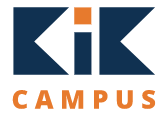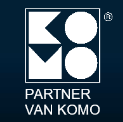Environment Act and Quality Assurance Act effective Jan. 1, 2024
On Tuesday, March 14, 2023, the 1st House of the States General agreed to the introduction of the Environment Act - which includes the Building Quality Assurance Act (WKB) - as of January 1, 2024. This will shift the system of supervision of new construction from municipalities to independent, qualified, quality assurance agencies. One can only be a Quality Assurer in the sense of the WKB if one is qualified by an Instrument Provider for Quality Assurance approved by the government for that purpose.
If you would like further information about the possibilities of becoming qualified for your role in the WKB, or would like an update on an offer you previously requested please contact Alexander Boele. He can be reached by phone at 088 244 01 00 or by email:
Key points of the Building Quality Assurance Act (Wkb)
A quality assurance company assesses completely independently whether a building plan can comply with and ultimately also complies with the Besluit bouwwerken leefomgeving (Bbl), formerly the Bouwbesluit. The quality assurance officer may not be involved in the realization of the new building project in any other way than in the role of quality assurance officer. A quality assurance officer may therefore not be the client, architect, contractor, etc. of the construction work for which the quality assurance officer is hired.
Tasks of quality assurance
The main task of the quality assurance officer is to ensure that a structure complies with Bbl upon delivery. If this is the case, the quality assurance officer issues a formal Declaration that in his opinion there is justified confidence that the completed building complies with Bbl. With this declaration and underlying evidence, the client goes to the municipality to request a Commissioning Permit. Without the declaration, a municipality will only issue such a permit in very exceptional situations. If a quality assurance officer finds during the plan development or during construction that the Bbl will not be complied with, the quality assurance officer will inform the client and demand improvements. If the deviation is such that it cannot be repaired, the borrower is obliged to inform the competent authority, in most cases the municipality, immediately. The municipality will then decide whether the construction will be stopped.
So the quality assurance officer is the linchpin in the new system of the WKB. But he may cooperate with other parties involved. The borrower may use documents provided by parties involved in the construction, such as attestations or product certificates of building products; from specialists e.g. structural engineers, installers, even from the contractor. The borrower may use the so-called 'own work' of an architect, contractor or installer involved in the construction. But the quality assurance officer determines whether the quality of the work supplied is sufficient and to what extent he takes it into account in his assessments.
Consequence classes
The WKB distinguishes three Consequence Classes. The consequence classes classify buildings according to the degree to which there are risks that a structure will not comply with the Bbl and, if so, what the possible consequential damage will be. The higher the risk, the higher the consequence class in which a structure falls. It was decided to start with consequence class 1 as of January 1, 2024, the class in which the least risky structures are defined, such as ground-level homes, industrial buildings and small infrastructural works. Consequence class 2 and 3 will also be brought under quality assurance in principle five years after the introduction of the WKB.

Role of SKG-IKOB Certification
SKG-IKOB can qualify individuals and organizations to participate in the WKB. We do this with a certification on the brl 5019. This assessment guideline was the basis for the current Wkb.
If you are certified for the BRL 5019, for one, several or all scopes, you can participate in the system of the Wkb.
If you are certified for the scopes on the basis of which you may act as Quality Assurer, you must be admitted to the Wkb system via an approved Instrument Provider. The instrument provider KIK (Komo Instrument for Quality Assurance) will accept a certificate based on the BRL 5019.
Would you like more information about the possibilities of becoming qualified and working as a borger with the WKB? Or would you like an update on an offer you previously requested please contact Alexander Boele.
He can be reached at 088 244 01 00 or by mail




